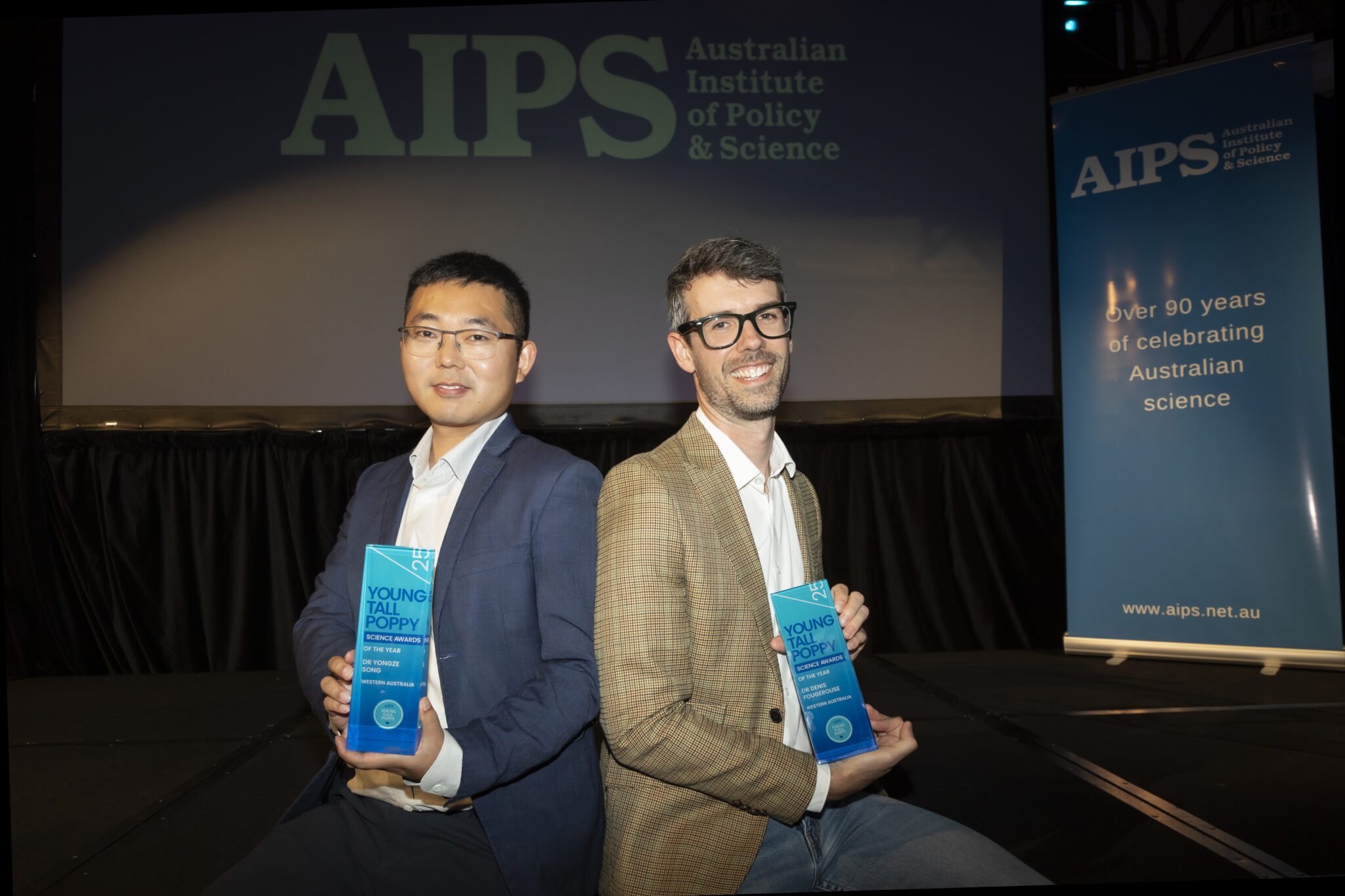Two Curtin University Researchers have been recognised among Australia’s top emerging science leaders, named joint Western Australian winners in the Australian Institute of Policy and Science (AIPS)’ prestigious 2025 Young Tall Poppy Science Awards.
Geologist Dr Denis Fougerouse and geospatial scientist Dr Yongze Song, were honoured for their respective research driving Australia’s clean energy and smart infrastructure futures.
The annual Young Tall Poppy Awards celebrate outstanding early-career scientists who combine world-class research with a passion for engaging the community in science.
Curtin Vice-Chancellor Professor Harlene Hayne congratulated the pair, saying their achievements reflected Curtin’s strength in producing globally significant research with real-world impact.
“Dr Fougerouse and Dr Song are both tackling challenges that matter deeply to Western Australia and the world. Their work places WA at the forefront of global efforts to advance renewable energy and sustainable urban development — two areas vital to our future prosperity,” Professor Hayne said.
“Having two of our researchers recognised as joint overall WA winners for the Young Tall Poppy Awards is a testament to Curtin’s strength in nurturing Australia’s best emerging scientists.”
As part of the Young Tall Poppy program, Dr Fougerouse and Dr Song will engage in education and outreach initiatives across Western Australia, visiting schools, running workshops and inspiring the next generation of scientists.
The two Curtin winners are:
Dr Denis Fougerouse is a geologist pioneering research in nanogeoscience and a key member of Curtin’s Geoscience Atom Probe facility. Dr Fougerouse is helping secure Australia’s role in the global transition to clean energy by improving how we find and extract critical minerals, the essential elements powering renewable technologies like batteries, wind turbines, and solar panels. Despite Australia’s rich mineral resources, may elements remain difficult to detect and extract. Dr Fougerouse’s research bridges this gap by using nanoscale analytical techniques to image atoms within minerals, revealing how valuable metals are distributed at the atomic level. He discovered that these metals are often concentrated in tiny crystal defects rather than uniformly spread throughout minerals, a finding that has major implications for how we mine and process critical resources. The senior lecturer leads a research group that’s working to provide the scientific foundation needed to improve mineral recovery, reduce waste, and build a more diverse, resilient, and sustainable critical minerals supply chain for the future.
Dr Yongze Song is a globally recognised geospatial scientist with strong industry partnerships worldwide. As leader of a geospatial intelligence team, he develops cutting-edge methods and software to improve sustainable infrastructure management. The senior lecturer uses geospatial artificial intelligence (GeoAI) to build smarter, greener, and more sustainable cities. Urban environments face growing challenges, roads deteriorate faster under climate stress, and green spaces that cool our cities are unevenly distributed. Dr Song’s research brings together satellite data, machine learning, and spatial analytics to reveal hidden patterns in how cities function. His open-source GeoAI tools and interactive maps, downloaded over 200,000 times worldwide, help governments predict road deterioration, measure urban heat, and identify inequalities in public service access. Working with national and international partners, including Western Australia’s road authorities, Dr Song is helping shape the next generation of data-driven urban planning, making infrastructure more resilient, cities more sustainable, and communities more equitable.
For more information about the 2025 WA Young Tall Poppy Science Awards, visit here.
This internet browser is outdated and does not support all features of this site. Please switch or upgrade to a different browser to display this site properly.
Curtin scientists share top honours as WA’s Young Tall Poppy winners



